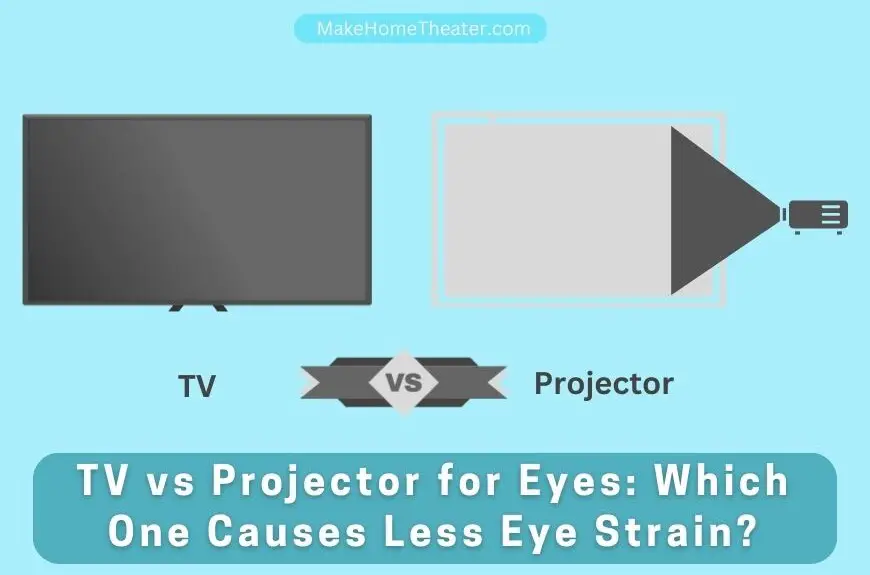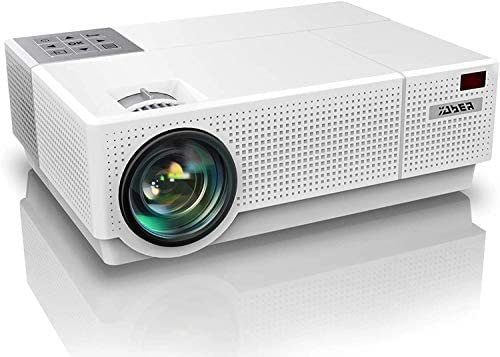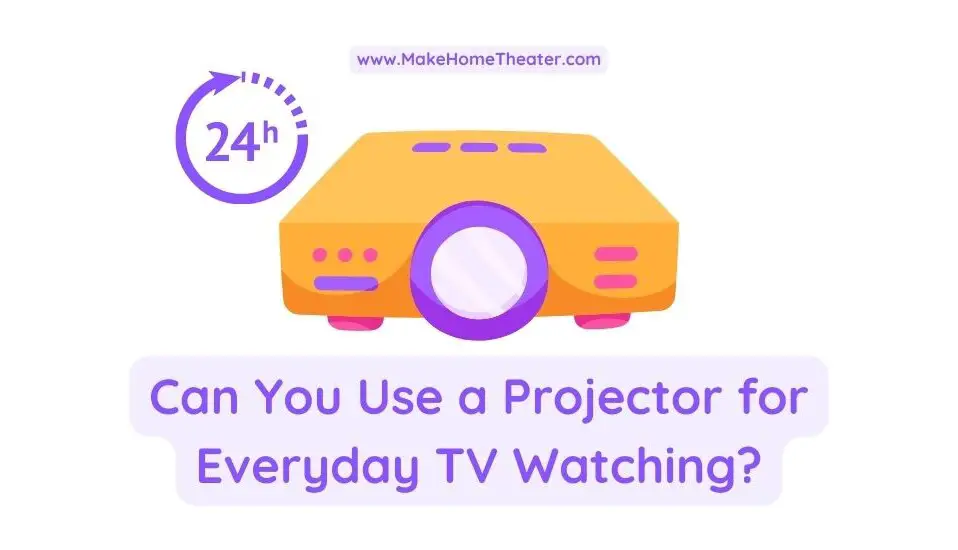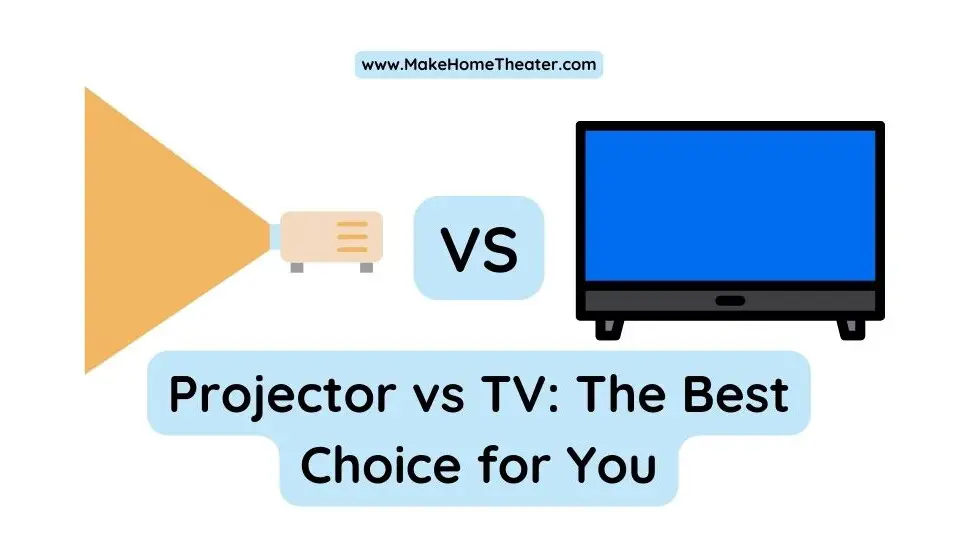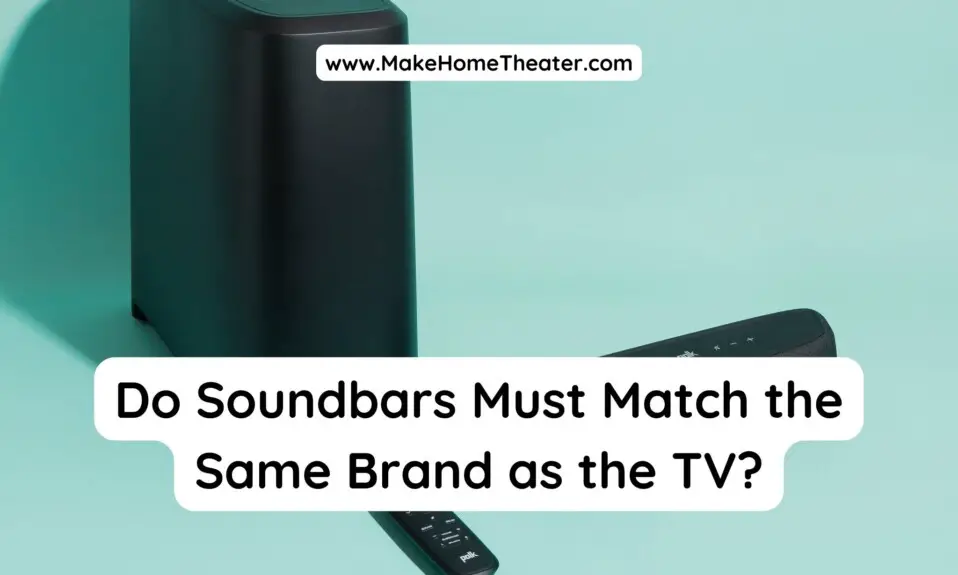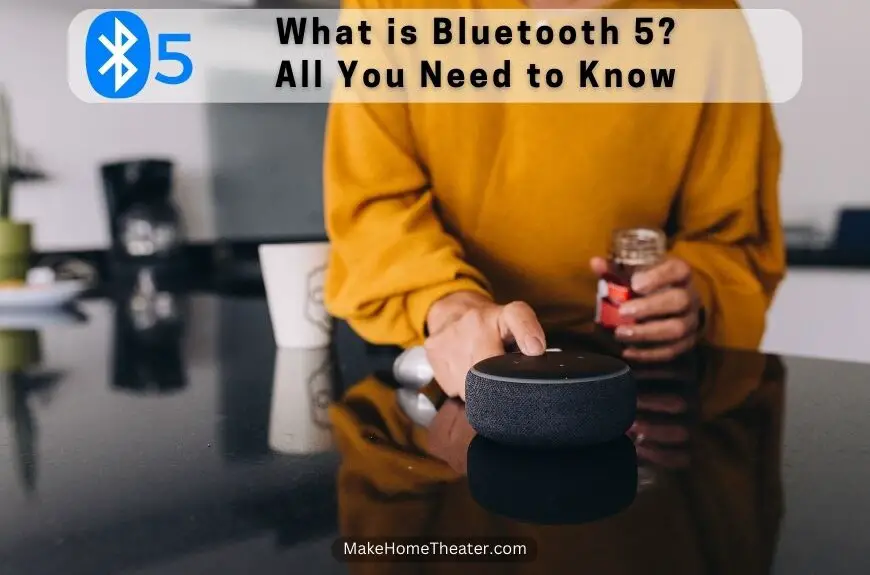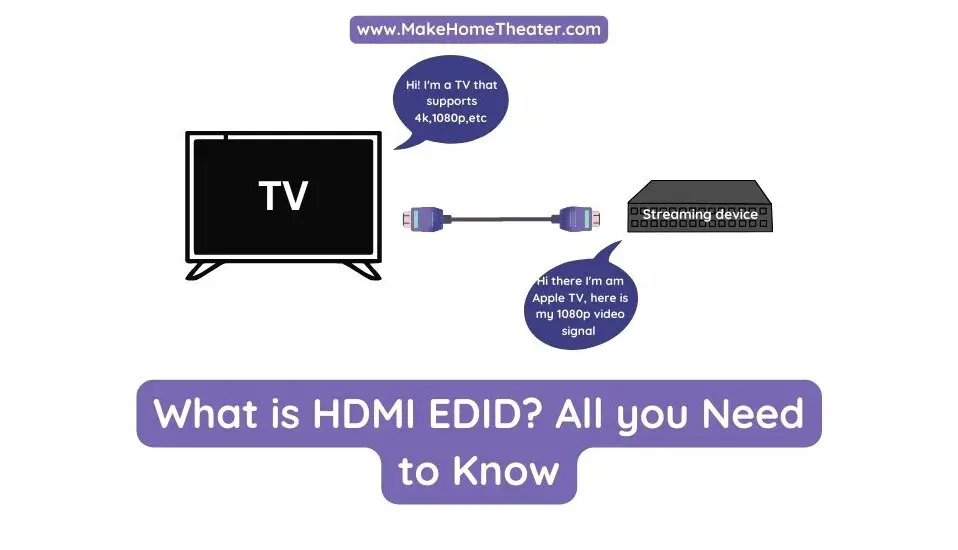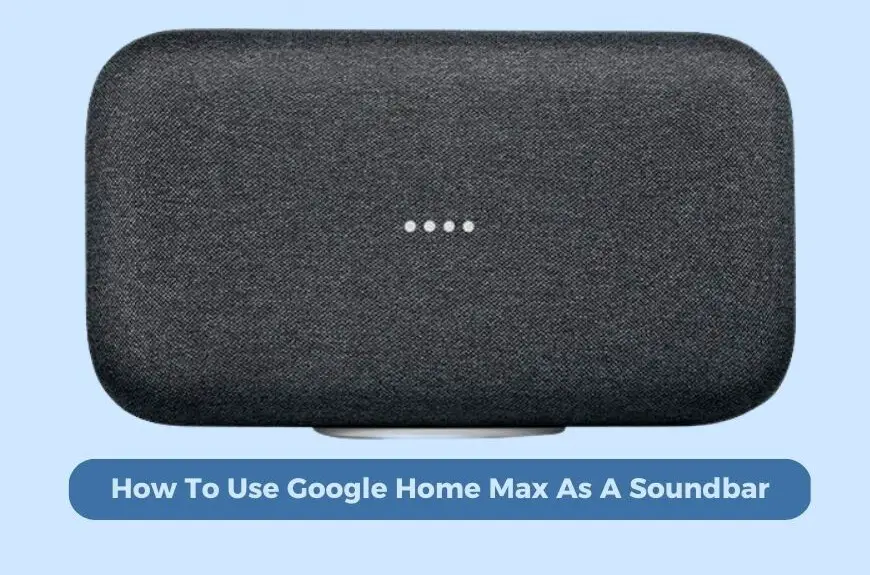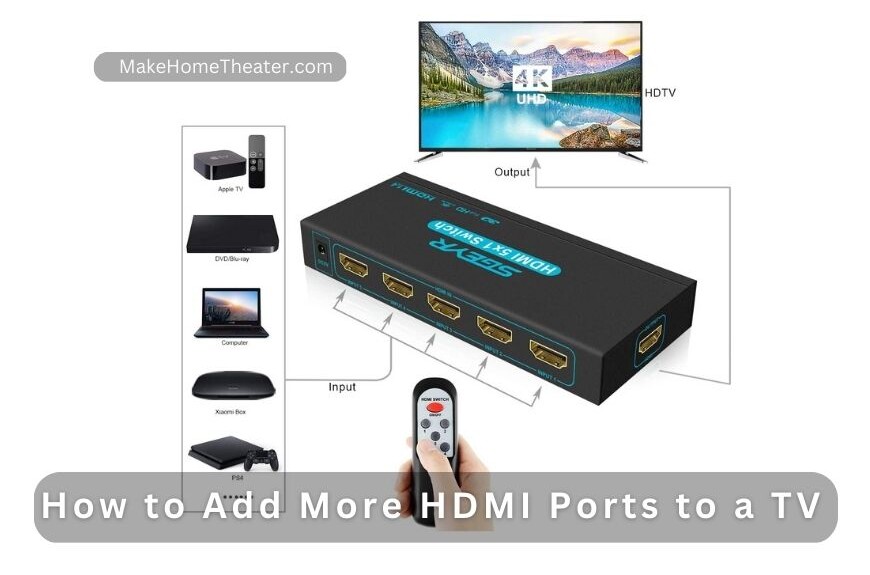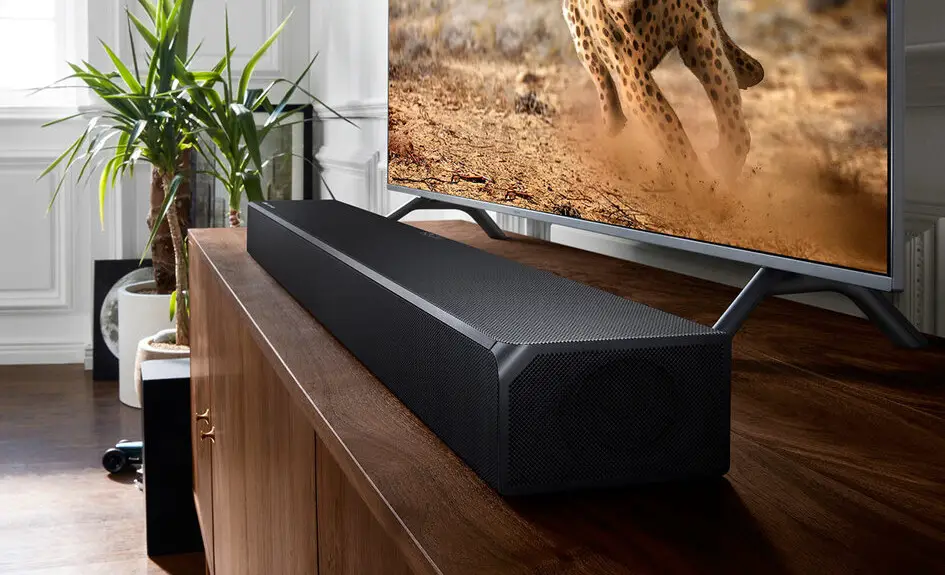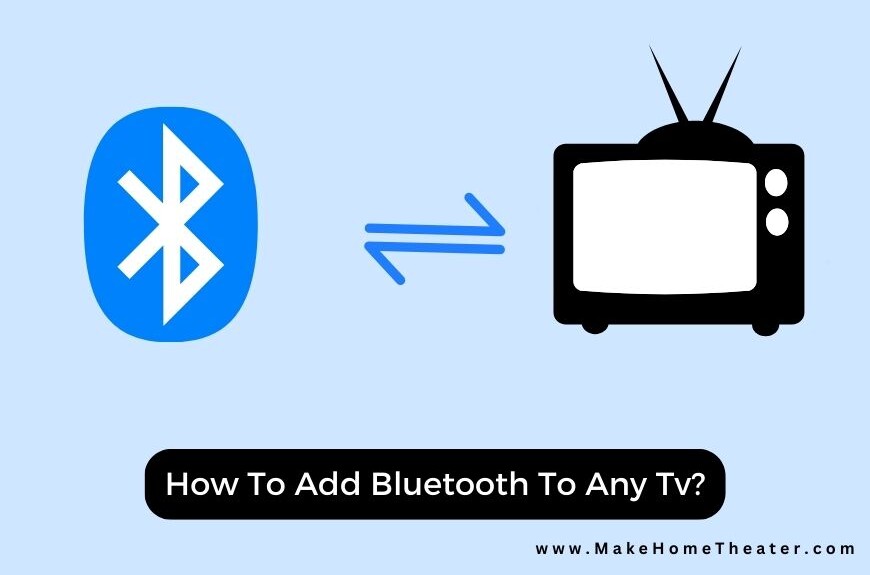Do you experience eye problems like many Americans? I certainly do. My twice-yearly eye check-up serves as a constant reminder to take better care of my eyes. In recent years, I’ve made an effort to do just that. We all know about the harmful effects of staring at a computer screen for too long. But did you know that your home theater setup may also be impacting your eye health? If you’re concerned about your vision or suffer from eye problems, the choice between TV vs projector for eyes is more important than you may realize.
So, which is better for your eyes: projector screens or TVs? The answer is that projector screens are actually better for your eyes. Projectors can produce much larger images, which put less strain on your eyes. Additionally, projectors reflect light while TVs emit it. The reflected light is easier on your eyes and keeps them comfortable without the added strain created by emitted light.
While both projectors and televisions have their pros and cons, let’s take a closer look at how they affect your eye health. After all, if you’re like me and love your home theater, you’ll be spending a lot of time in front of the screen. It only makes sense to protect your eyes while doing so.
Table of Contents
TV vs Projector for Eyes: Which Offers the Best Visual Experience?
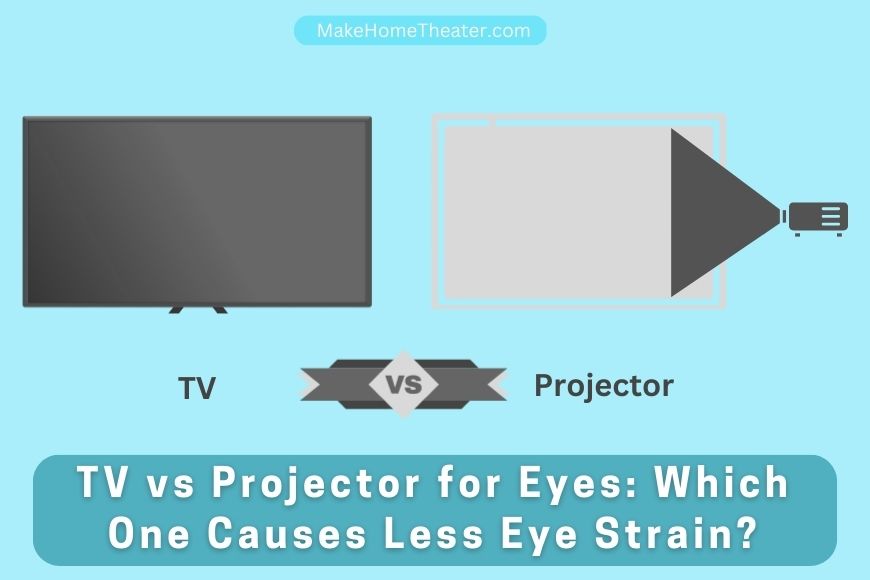
When deciding on a home theater setup, there are many factors to consider. If you’re interested in projectors, you’ll need to evaluate specifications like ambient light, lumens, and contrast ratios (our guide) to choose the right screen. However, it’s also important to consider the impact of these factors.
Image Resolution & Scalability
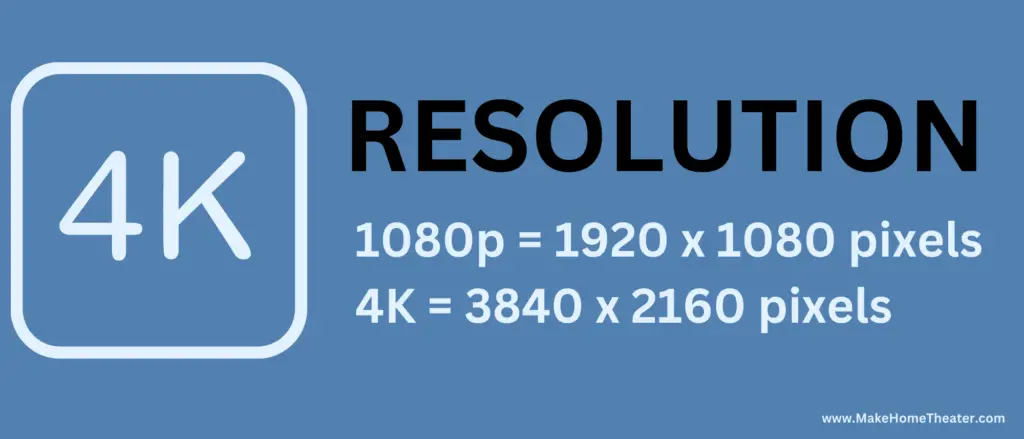
When it comes to choosing a home theater setup, televisions offer an array of sizes and resolutions. High Definition televisions (HDTVs) are a popular choice for many, as they come with 1080p technology built in, providing a clear image. However, this may not be the best choice for your eyes.
TVs have fixed resolutions and screen sizes, limiting your ability to adjust the image to a more comfortable size ( a step-by-step guide). On the other hand, projectors offer more flexibility in image size and scaling. Technological advances have allowed some higher-end projectors to exceed the 1080p resolution, making them an even better option for your eye health. With the potential to scale images over 100-inches, projectors offer a more comfortable viewing experience for your eyes.
Reflected Light vs Emitted Light
When a TV receives a signal, it uses a cathode-ray tube (CRT) process to emit a picture through your screen using electrons and light. This means that your TV emits an image towards you. Modern TVs are significantly brighter than older models, and manufacturers are constantly trying to increase brightness to create a more crisp and realistic image. However, there are limits to how much brightness your eyes can handle, and excessive brightness can cause headaches and tired eyes.
Projector screens, on the other hand, reflect the image from the projector, which greatly reduces the amount of light captured by your eyes. This reduces stress on your optic nerve and makes viewing much more comfortable for many people. Unlike TVs, projector screens do not emit light, making them a great option for reducing eye strain.
Weighing the Pros and Cons

While projector screens may be better for your eyes, there are some tradeoffs to consider. For example:
Ambient Light
When using home theater projectors, the presence of ambient light can affect their clarity. Although models that work well in ambient light do exist, they tend to be more expensive than regular HDTVs.
According to most experts, rooms with some ambient light require at least 2,000 ANSI lumens. If a room has a lot of ambient light, however, it is recommended to opt for a model with 3,000 ANSI lumens or more to combat image dilution.
While not everyone is bothered by this issue, it’s worth considering if you plan to invest in a projector for your home theater or business.
If you’re unsure about the measurement of lumens, we recommend reading our comprehensive article on the subject.( projector lumens )
Bulb Lifespan
Projectors (YABER Y31 9800L On Amazon) operate by utilizing unique light bulbs that project images onto a screen. While this light is gentler on the eyes than TV screens, it does come at a cost.
Depending on the type of projector you purchase, the bulb may have a limited lifespan of just a few thousand hours. It’s worth noting that these bulbs can be costly, so it’s crucial to research the replacement cost of bulbs before purchasing a projector.
Room Size
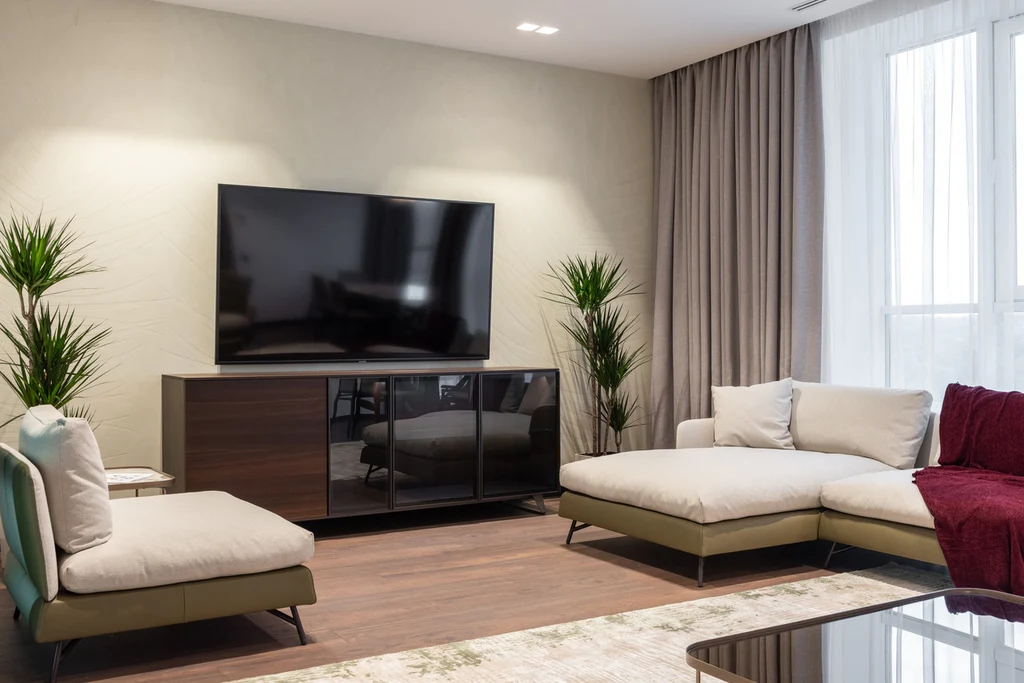
One of the biggest advantages of projectors is their ability to project images on screens of various sizes, with some models being portable.
However, it’s essential to consider your room’s size when selecting a projector, as certain models may be better suited for specific room sizes. For instance, some individuals, myself included, believe that laser projectors are more energy-efficient, so exploring different options can be beneficial.
Moreover, the size of your room may restrict your ability to view images on a large screen. Nonetheless, projectors remain a healthier option for your eyes due to the reflected light they use.
Related Q&A

What are some factors to consider when investing in a home theater?
Factors to consider include ambient light, lumens, contrast ratios, and image resolution and scalability.
Which is better for the eyes, a TV or a projector?
A projector is better for the eyes as it puts less strain on them than a TV.
Do high-definition televisions (HDTVs) provide clearer images than projectors?
HDTVs provide clear images, but projectors offer more flexibility in adjusting and scaling images.
What is the difference between reflected and emitted light?
Reflected light bouncesoff a surface, while emitted light is produced by a source and travels towards an observer.
What is the process by which a TV emits an image?
A TV emits an image through a cathode-ray tube (CRT) process using electrons and light.
Can too much brightness from a TV cause eye strain or headaches?
Yes, excessive brightness from a TV can cause eye strain or headaches.
What can cause home theater projectors to appear less crisp?
Ambient light can cause projectors to appear less crisp.
Are projectors that work well in ambient light typically more expensive than standard HDTVs?
Yes, projectors that work well in ambient light are usually more expensive than standard HDTVs.
Do projector screens emit light?
No, projector screens reflect light instead of emitting it.
Can a projector screen reduce stress levels on the optic nerve?
Yes, a projector screen can reduce stress levels on the optic nerve.
What is the lifespan of the lightbulbs used in projectors?
The lightbulb lifespan in projectors varies but typically ranges from 2,000 to 10,000 hours.
Why is it important to consider eye health when investing in a home theater?
Considering eye health when investing in a home theater can help prevent eye strain, headaches, and other vision issues


